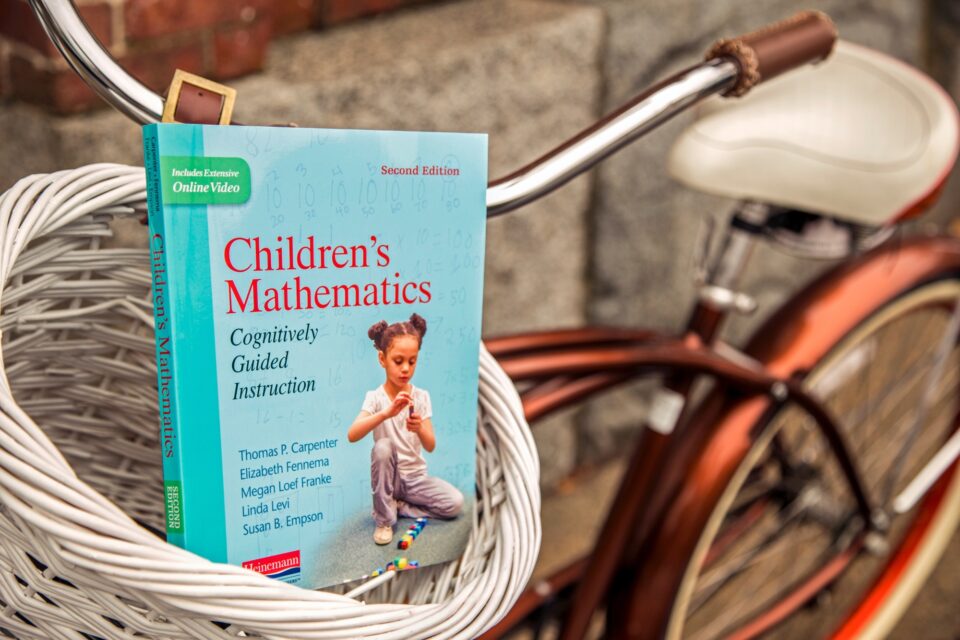
The new edition of Children’s Mathematics, which comes out on Wednesday, builds on the legacy of the highly influential first edition. In it, authors Thomas Carpenter, Elizabeth Fennema, Megan Franke, Linda Levi, and Susan Empson explore the philosophy of Cognitively Guided Instruction (CGI) for helping children develop deep mathematical understanding. In this blog, which is a selection written for the book, the authors discuss the importance of developing children’s identities as mathematical thinkers. Today’s blog is a selection from Children’s Mathematics 2nd Edition.
Children’s Identity as Mathematical Thinkers
Written by Thomas P. Carpenter, Elizabeth Fennema, Megan Loef Franke, Linda Levi, and Susan B. Empson
As students in CGI classrooms acquire knowledge and skills, they also develop a sense of themselves as mathematicians. Students learn to see themselves as capable; they know they can figure out how to solve problems, even problems that may seem challenging at first. They know that they can learn by solving problems and exchanging ideas with each other and that a problem that seems hard one day may seem just right in a month or two. They see that explaining their strategies, asking questions of others, and trying a new representation or tool will help them figure out a new strategy.
Seeing oneself as someone who can do mathematics successfully is a part of understanding. It is not just the students with the most efficient or sophisticated strategies who see themselves as capable. A primary goal of CGI is that each student, from those using strategies early in the trajectory to those using advanced strategies, see themselves as able to make sense of mathematics. This orientation is potentially one of the most enduring legacies of student participation in CGI classes in the elementary grades.
A question we are frequently asked is whether the focus on understanding in CGI classes will place students at a disadvantage if they are in classes in later grades that emphasize computational skills. You are never doing a disservice to students by helping them develop understanding. The understanding that students acquire in earlier grades will provide a foundation that can make learning skills in subsequent grades easier even if the emphasis is not on understanding. Furthermore, students believing that mathematics should make sense and that they are capable of making sense of it can support learning in any class.
See what other educators are saying about Children’s Mathematics at Heinemann.com/ChildrensMath and preview the new edition by downloading a sample chapter.


